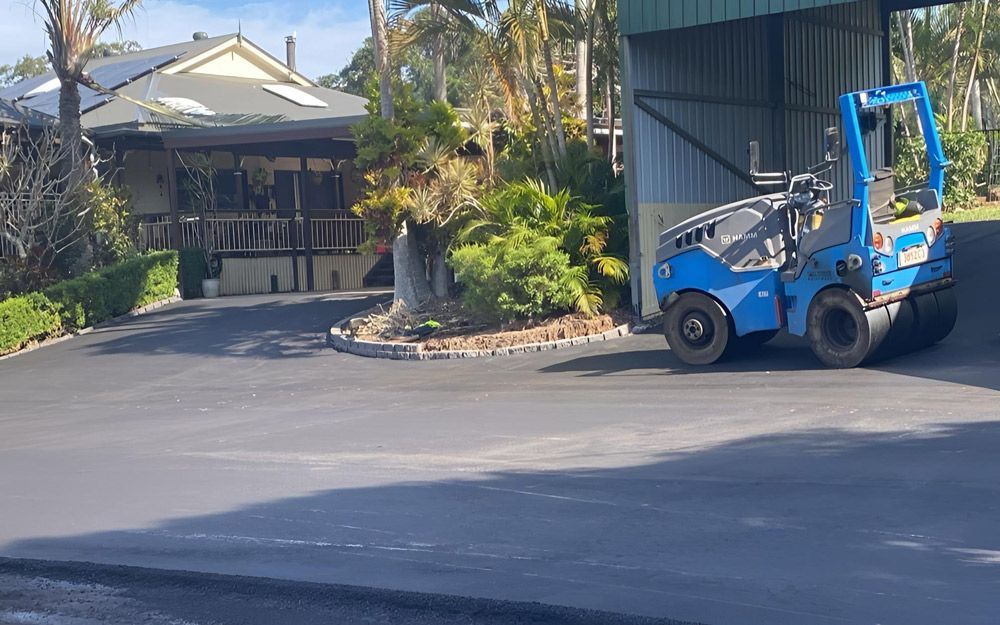How To Make Your Asphalt Driveway Last For Decades
When you’re investing in asphalt driveways in Brisbane, you’re not just laying down a surface—you’re making a long-term choice for your property. Asphalt is known for its durability, affordability and sleek appearance, but it still requires the right approach to stand the test of time. With Brisbane’s warm climate and seasonal rains, your asphalt surface will face specific challenges that can shorten its lifespan if ignored.
The good news? With thoughtful planning, regular upkeep and an understanding of what causes premature wear, your asphalt driveway can easily last two to three decades—or even longer. Here’s how to keep your driveway in top shape year after year.
Why Lifespan Matters When Investing in an Asphalt Driveway
For homeowners, especially those on a budget or planning to stay in their home for the long term, the lifespan of a driveway plays a significant role in the overall value of the installation. Replacing a driveway every 10–12 years due to neglect can be far more expensive than simply maintaining it properly over 25 years or more.
Several key factors influence how long your asphalt surface will last:
- The quality of installation, including site preparation and base compaction, directly affects the structural integrity of the driveway.
- The type of vehicles regularly using the driveway impacts surface wear, especially for heavier cars or trailers.
- Local climate, including Brisbane’s hot summers and heavy rain events, accelerates deterioration without protective care.
- Regular maintenance, like sealing, crack patching, and cleaning, will significantly slow down wear and tear.
The Role of Professional Installation in Long-Term Durability
No amount of maintenance can fully compensate for a poorly installed system. A properly installed asphalt driveway starts with site-specific planning and meticulous groundwork. Professional installers don’t just lay asphalt—they build a strong foundation that supports it for decades.
Key techniques used by professionals to ensure lasting results include:
- Compacting the sub-base thoroughly to prevent shifting, cracking or sinking as the soil settles over time.
- Designing a slight slope or gradient to allow proper water runoff and avoid pooling on the surface.
- Using the right asphalt mix for Brisbane’s conditions, ensuring it can handle both high summer temperatures and wet seasons.
Cutting corners during installation almost always results in early surface failure, which is why choosing trained professionals is a must.
Climate Challenges for Asphalt Driveways in Brisbane
In Brisbane, summer heat and seasonal storms both play a part in the life of your driveway. Prolonged exposure to UV rays causes the asphalt to oxidise, becoming brittle and prone to cracking. During heavy rain, poor drainage can cause water to seep into cracks and erode the base.
To help protect against Brisbane’s harsh conditions:
Tips for managing local climate impacts:
- Ensure your driveway has proper drainage away from the property to prevent water pooling.
- Avoid parking heavy vehicles in the same spot for long periods during hot weather to reduce stress on the asphalt.
- Sealcoat your driveway to create a barrier against both moisture and UV damage.
Sealcoating: The Single Most Important Thing You Can Do
If you do nothing else to maintain your asphalt driveway in Brisbane, make sure you seal it. Sealcoating acts as a protective skin, shielding the asphalt from water, sunlight, fuel spills and oxidation. Done properly, it can double the lifespan of your driveway.
The benefits of sealcoating include:
- Reducing the rate at which your driveway dries out and becomes brittle in the sun.
- Blocking water from entering small cracks prevents erosion of the base material underneath.
- Creating a smoother surface that’s easier to clean and more resistant to oil stains.
- Restoring the rich black appearance of the asphalt makes your property look well-maintained.
For best results, sealcoating should be done every 3–5 years, depending on exposure and wear.
Don’t Let Small Cracks Become Major Problems
A crack in your driveway might seem harmless at first, but even tiny fissures can allow water to penetrate the asphalt. Over time, that moisture can break down the layers beneath, leading to potholes, surface failure and the need for costly repairs.
To prevent small cracks from escalating:
- Conduct visual inspections periodically, especially after severe storms or prolonged periods of hot weather.
- Use a high-quality crack filler or cold patch to seal minor damage as soon as it appears.
- Keep an eye on any repaired areas and reapply sealant as needed.
Acting early can save thousands in future resurfacing costs.
Keep It Clean: Debris, Oil & Standing Water Cause Damage
Routine cleaning may seem simple, but it plays a crucial role in maintaining the appearance and performance of asphalt driveways near you. Dirt, gravel and leaves trap moisture on the surface, while oil stains break down the asphalt binder that holds everything together.
Practical cleaning habits that extend driveway lifespan include:
- Sweeping away leaves and loose debris every couple of weeks, especially during storm season.
- Washing away fuel or oil spills promptly with a degreasing cleaner to avoid surface breakdown.
- Ensuring water drains freely off the driveway and not into low-lying areas where it can pool or erode the edge.
Preventive care is always more effective than reactive repairs.
Choose the Right Driveway for Your Property Type
Not all asphalt driveways are created equal. A narrow driveway for a single car requires different planning than a wider one designed for dual access or heavier traffic, such as boat trailers or caravans. Matching the driveway to your property and intended use is crucial for long-term performance.
Factors to consider when designing your driveway:
- Thicker asphalt is recommended for driveways supporting heavy vehicles or frequent traffic.
- Wider driveways reduce stress by allowing vehicles to spread weight more evenly.
- Edging with concrete or pavers can prevent crumbling at the sides, especially where lawn or gardens border the asphalt.
Tailoring the design upfront avoids premature wear from mismatched use.
Schedule a Professional Check-Up Every Few Years
You may not always spot the early signs of wear, but a trained eye will. Scheduling a driveway inspection every few years helps you stay ahead of hidden issues and make timely, cost-effective repairs.
A professional driveway inspection typically includes:
- Assessing surface condition for signs of cracking, rutting, fading or soft spots.
- Checking for proper drainage and identifying any pooling or erosion.
- Inspecting the edges and joints for signs of separation or vegetation growth.
- Recommending patching, sealing or other preventative services based on wear.
Periodic inspections give you peace of mind and preserve your investment.
Let’s Help Your Driveway Go the Distance
At
RFD Asphalt, we specialise in long-lasting asphalt driveways in Brisbane, designed to handle the local climate and your everyday needs. Whether you’re planning a new installation or want to improve the life of an existing surface, our team can help.
Contact us to explore your options or get in touch for tailored advice. Let’s make sure your driveway looks great and performs even better—now and well into the future.








